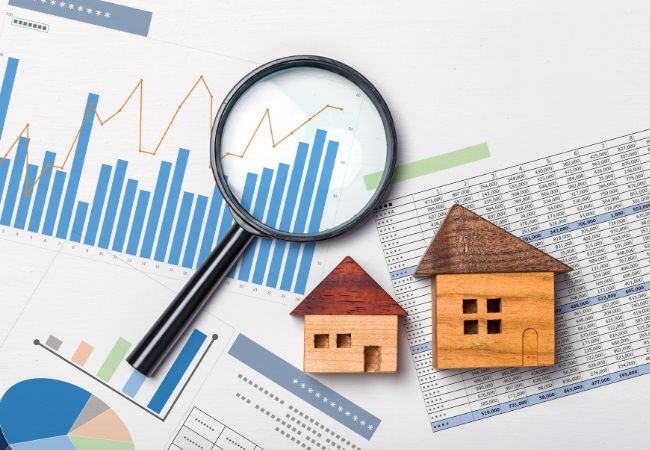If you’re looking to get into the real estate game, then you’ll definitely want to know about CMA. CMA stands for Comparative Market Analysis, and it’s an essential tool that real estate agents use to help clients determine the value of a particular property.
I know what you’re thinking: “Why do I need to know about CMA? I just want to buy or sell a house!” But here’s the thing: CMA is crucial for making informed decisions about your real estate ventures. It helps you understand the market, set realistic price expectations, and make the most of your investment.
Table of Contents
So, Let’s Dive Into What CMA Is All About!
First things first – CMA is all about comparing. We take a look at similar properties in the area and see how they’ve been priced and sold recently. This gives us a good idea of what buyers are willing to pay and helps us determine a fair price for the property in question.
But it’s not just about the price. We also consider things like the property’s condition, size, location, and any special features it might have. All of these factors play a role in determining the value of a property.
Now, I know what you might be thinking – “That sounds like a lot of work! How do you even go about doing a CMA?” It’s actually not as complicated as it might seem. We start by identifying comparable properties, or “comps,” in the area. These are homes that are similar in size, age, location, and features to the property in question.
Next, we gather data on these comps. This includes things like the sale price, the date of the sale, and any relevant details about the property. We use this information to create a report that shows how the comps compare to the property in question.
But here’s the thing – CMA isn’t an exact science. There’s always some room for interpretation, and it’s important to keep in mind that every property is unique. That’s why working with a seasoned real estate agent with extensive market knowledge and who can provide valuable insights and guidance is crucial.
So, now that you know a little bit about CMA, you might be wondering how it can help you. Well, here are a few ways:
- Setting a realistic price: If you’re selling a property, CMA can help you determine a fair price that’s based on the current market conditions. This can help you avoid overpricing or underpricing your home, which can lead to a longer selling process or a missed opportunity for a higher price.
- Making informed decisions: Whether you’re buying or selling, CMA can help you understand the current market conditions and make informed decisions about your real estate ventures. It can also help you understand the local market trends and identify potential issues or opportunities.
- Negotiating: CMA can be a valuable tool for negotiating the price of a property. By understanding the value of the property and the comparable properties in the area, you can have a stronger negotiating position and potentially secure a better deal.
In conclusion, CMA is a vital tool for anyone looking to buy or sell a property. It helps you understand the market, set realistic price expectations, and make informed decisions about your real estate ventures. So, if you’re planning on entering the world of real estate, make sure you know your CMA! And as always, don’t hesitate to reach out to a seasoned real estate agent for expert guidance and assistance. Happy house hunting!
Of course! I’d be happy to continue discussing CMA in the real estate world.
Choosing the Right Approach: Understanding the Different Methods of Comparative Market Analysis (CMA)
As I mentioned earlier, CMA is all about comparing similar properties in the area to determine the value of a particular property. But it’s important to note that there are different approaches to CMA, and it’s important to choose the one that’s right for your needs.
One approach is known as the “cost approach.” This involves estimating the cost of rebuilding the property from scratch and subtracting any depreciation. This approach is often used for new construction or properties with unique features.
Another approach is known as the “income approach.” This involves estimating the potential income the property could generate, such as rent from a rental property. This approach is often used for investment properties or commercial real estate.
Finally, there’s the “sales comparison approach,” which is probably the most common method of CMA. This involves comparing the property in question to similar properties that have recently sold in the area. It’s important to note that this approach is most effective in stable markets where there is a sufficient number of comparable sales.
The Comprehensive Role of Real Estate Agents: Beyond CMA in Buying and Selling Properties
Now, CMA isn’t the only tool that real estate agents use to help clients determine the value of a property. We also use other resources, such as public records, appraisals, and market trends, to get a comprehensive understanding of the market and the value of a particular property.
It’s also worth noting that CMA is just one part of the real estate process. As a seasoned real estate agent, I can assist clients in a variety of other areas, such as choosing the ideal property for their needs in terms of price range, lifestyle, location requirements, and more. I can also help with the negotiation process, handling paperwork and contracts, and navigating any challenges or issues that may arise during the transaction.
In short, CMA is a crucial tool for anyone looking to buy or sell a property, and working with a seasoned real estate agent can provide valuable guidance and assistance throughout the process. If you have any questions or need help with your real estate ventures, don’t hesitate to reach out. I’m here to help!









